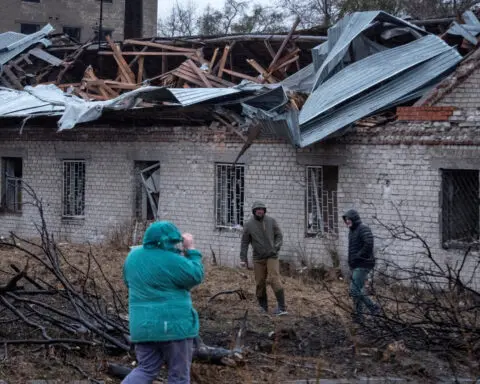When intimate photos of 24-year-old Madison Conradis appeared online without her consent over a decade ago, she became a victim of a cyber stalker and felt violated and afraid, unsure of how the images were obtained or who was responsible. The leak of private photos she had taken as a model in college threatened her reputation and peace of mind. Despite reporting it to the police, she was informed that what had happened did not constitute a crime under the law. Little did Madison know several other women had fallen victim to the same anonymous cyber stalker online. Alongside her twin sister Christine, the two began investigating about the cyber stalker themselves when authorities failed to take action.
What transpired over the next several years was a complex case spanning multiple states, police jurisdictions, and victims. The sophisticated stalker covered his digital tracks well across various online platforms, making him difficult to trace. Out of frustration with the lack of legal recourse for victims of "revenge porn," Madison and Christine meticulously gathered evidence themselves to identify the perpetrator. Refusing to relent to intimidation or slut-shaming attitudes, the twin sisters diligently connected the dots to build a water-tight case that finally brought a prolific cyber stalker to justice.
When racy photos of Madison first surfaced on 4chan in 2013, she felt "her heart drop", scared of how they were obtained and who else might see them. The images were likely stolen in a website hack a year ago and posted publicly alongside her contact details. She soon endured harassing messages demanding more nude photos while the existing ones spread to her family members' inboxes. Even clients at her Florida marketing job received unsolicited content. The traumatic situation impacted her personal and professional life, as she dreaded the photos resurfacing anytime she met someone new.
Madison turned to authorities for help when the online sexual harassment persisted, hoping a new 2015 Florida law against cyber harassment would deter her anonymous stalker. But local police said the required proof of the perpetrator’s “intent to harm” was difficult to establish. With the cyber stalker’s identity hidden, authorities could not determine if he consciously meant to distress Madison or was simply deriving personal pleasure from his actions. Regardless of motive, the violations continued tormenting Madison without repercussions from the law.
A clue finally surfaced about the stalker’s identity after Madison posted a Snapchat image from vacation with her boyfriend in 2016. She soon received a message referencing the post from one of the anonymous accounts harassing her for years. After some sleuthing, Madison pinpointed the very last viewer of her vacation Snapchat story was a certain Christopher Buonocore - someone she recalled from her college days in Florida. Still, a mere Snapchat view did not directly incriminate Buonocore as the culprit behind her years-long abuse.
Madison broke up with said boyfriend in late 2017, convinced he was connected to her photos leaking again with increased virulence, including personal images of her twin sister Christine. The twin sisters filed a lawsuit to unmask the anonymous “John Doe” cyber stalker and subpoena online platforms for identifying details. While awaiting responses to dig deeper, Madison and Christine did their own cyber investigation about the stalker’s patterns across the internet. Analyzing similarities in writing style, messaging app usernames, and networks of victims, they uncovered four more women being actively harassed by the same individual. All the victims suspiciously had just one common thread – Christopher Buonocore.
The twins eventually contacted the other victims directly in 2019 after realizing law enforcement remained reluctant to intervene without ironclad confirmation of the stalker’s identity. One turned out to be Buonocore’s underage relative, preyed upon since age 14. Another was his childhood friend from New York, who recognized his messaging quirks when confronting him about her stolen nude photos. His ex-fiancée in New York and Florida ex-girlfriend were also among those abused.
Equipped with their own comprehensive case file mapping Buonocore’s offenses across multiple jurisdictions, the twin sisters compelled the previously dismissive police to reopen investigations. With evidence clearly pointing to violations spanning interstate lines, the FBI finally pursued criminal charges for cyberstalking against Buonocore in late 2020 on behalf of all six victims. Madison and Christine’s civil lawsuit had essentially smoked him out of hiding by replacing “John Doe '' with Buonocore’s name in their complaint. He subsequently filed for bankruptcy and never responded formally to their lawsuit.
Concerned the extensive trauma they endured would still not be fully recognized even after unmasking the stalker, Madison gave an impassioned victim impact statement at Buonocore’s 2021 sentencing hearing. She implored the presiding Florida judge unfamiliar with typical cyberstalking cases to consider the sheer scale of image violations across thousands of anonymous online posts. In an unexpected decision, Buonocore ultimately received over 15 years in federal prison – far exceeding even the prosecutor’s recommended sentence.
For Madison, her sister, and Buonocore’s other victims, some sense of justice was finally served after years of battling an elusive, malicious cyber stalker online. But full closure remained impossible, as the highly-publicized case now also compromised their own privacy moving forward. By relentlessly investigating the once-unknown stalker themselves, the twins found resolution at the cost of permanent Google trials attached to their names for cracking the complex case. Still, Madison is determined to use their painful experience to advocate for stronger laws protecting victims of non-consensual pornography and online abuse. Their self-driven pursuit of justice serves as a cautionary tale for why cyber harassment of intimate images must be taken more seriously.

 Beyond evangelicals, Trump and his allies courted smaller faith groups, from the Amish to Chabad
Beyond evangelicals, Trump and his allies courted smaller faith groups, from the Amish to Chabad
 McDonald’s is giving its menu the biggest shakeup in years
McDonald’s is giving its menu the biggest shakeup in years
 Little hope in Gaza that arrest warrants will cool Israeli onslaught
Little hope in Gaza that arrest warrants will cool Israeli onslaught
 Mexico's economy up 1.1% in the third quarter
Mexico's economy up 1.1% in the third quarter
 Son of Norway’s crown princess accused of second rape
Son of Norway’s crown princess accused of second rape
 Swiss National Bank chief stresses tackling inflation as main goal
Swiss National Bank chief stresses tackling inflation as main goal
 Honeywell to sell personal protective equipment business for $1.33 billion
Honeywell to sell personal protective equipment business for $1.33 billion
 Here's Jason: Kelce will host late-night show on ESPN beginning final week of NFL season
Here's Jason: Kelce will host late-night show on ESPN beginning final week of NFL season
 Rare first edition of Machiavelli’s famous leadership treatise, ‘The Prince,’ goes up for auction
Rare first edition of Machiavelli’s famous leadership treatise, ‘The Prince,’ goes up for auction
 Romania and Bulgaria may become full Schengen members in January, Hungary says
Romania and Bulgaria may become full Schengen members in January, Hungary says








